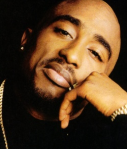
Have you ever wondered what was on rapper Notorious Big’s reading list? Do a Google search and see what you come up with. If I had to guess, I’d say Biggie probably didn’t read much, but the same can’t be said about Tupac Shakur.
I came across a link on Flavorwire that referenced “The Private Book Collections of 10 Famous Readers.” Needless to say, I was thankful to see a couple of black faces. Oprah–an obvious choice–and Tupac, who I knew read books, but I can’t say that I’m necessarily familiar with what he read. It’s nice to see that he’s noted as a “famous reader.” What a list to be on. Take a moment and review just a few titles from Tupac’s reading list:
All God’s Children: The Bosket Family and the American Tradition of Violence by Fox Butterfield
Willie Bosket is a brilliant, violent man who began his criminal career at age five; his slaying of two subway riders at fifteen led to the passage of the first law in the nation allowing teenagers to be tried as adults. Butterfield traces the Bosket family back to their days as South Carolina slaves and documents how Willie is the culmination of generations of neglect, cruelty, discrimination and brutality directed at black Americans. From the terrifying scourge of the Ku Klux Klan during Reconstruction to the brutal streets of 1970s New York, this is an unforgettable examination of the painful roots of violence and racism in America.
The Confessions of Nat Turner by William Styron
In the late summer of 1831, in a remote section of southeastern Virginia, there took place the only effective, sustained revolt in the annals of American Negro slavery… The revolt was led by a remarkable Negro preacher named Nat Turner, an educated slave who felt himself divinely ordained to annihilate all the white people in the region. The Confessions of Nat Turner is narrated by Nat himself as he lingers in jail through the cold autumnal days before his execution. The compelling story ranges over the whole of Nat’s Life, reaching its inevitable and shattering climax that bloody day in August. The Confessions of Nat Turner is not only a masterpiece of storytelling; is also reveals in unforgettable human terms the agonizing essence of Negro slavery. Through the mind of a slave, Willie Styron has re-created a catastrophic event, and dramatized the intermingled miseries, frustrations–and hopes–which caused this extraordinary black man to rise up out of the early mists of our history and strike down those who held his people in bondage.
.“The path the slave took to ‘citizenship’ is what I want to look at. And I make my analogy through the slave citizen’s music — through the music that is most closely associated with him: blues and a later, but parallel development, jazz… [If] the Negro represents, or is symbolic of, something in and about the nature of American culture, this certainly should be revealed by his characteristic music.” So says Amiri Baraka in the Introduction to Blues People, his classic work on the place of jazz and blues in American social, musical, economic, and cultural history. From the music of African slaves in the United States through the music scene of the 1960’s, Baraka traces the influence of what he calls “negro music” on white America — not only in the context of music and pop culture but also in terms of the values and perspectives passed on through the music. In tracing the music, he brilliantly illuminates the influence of African Americans on American culture and history...One of the 20th century’s enduring works, One Hundred Years of Solitude is a widely beloved and acclaimed novel known throughout the world, and the ultimate achievement of a Nobel Prize winning career. The novel tells the story of the rise and fall of the mythical town of Macondo through the history of the family. It is a rich and brilliant chronicle of life and death, and the tragicomedy of humankind. In the noble, ridiculous, beautiful, and tawdry story of the family, one sees all of humanity, just as in the history, myths, growth, and decay of Macondo, one sees all of Latin America.Savage Inequalities by Jonathan Kozol
Jonathan Kozol traveled from the most blighted neighborhoods of Chicago to the urban wreckage of Camden, New Jersey; from the ghetto suburbs of Detroit to inner-city San Antonio; East St. Louis, and Washington, D.C. Everywhere, he discovered separate systems of public schools, with the children of America’s poor condemned to schools that are underfunded, understaffed, physically crumbling, and imbued with despair. The richest Americans congratulate themselves on the large sums they invest in their children’s schools, while the poor actually devote proportionally larger shares of their incomes to education. “Savage Inequalities” carries a sense of urgency and immediacy, and will certainly revive debate on the most vital, fundamental, and controversial issue facing America today!
Marilyn Monroe was also on the list, but they didn’t mention the book Invisible Man by Ralph Ellison as part of her collection. Of course you can find that type of information on my blog, if you’re interested. If you want to see more books from Tupac’s reading list, go here, here, or here.
Until next time, happy reading, y’all!
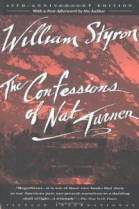
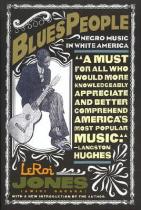
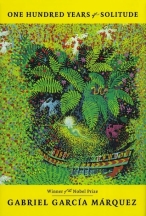
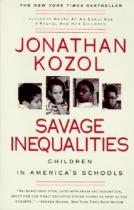
Can’t wait to read some of these, thanks again for a wonderful post, this has got to be the best book blog ever!
LikeLike
Thank you for reading! Again, I added a few of his books to my Goodreads list.
LikeLike
I always knew he was an intelligent young man. I’m impressed with his book choices. I might want to read some of those. I liked Biggie too, I don’t know this for fact but I don’t think he was a reader. I could be wrong though.
LikeLike
I definitely added a few of his books to my reading list.
LikeLike
But Tupac was raised around black activist so I’m sure someone had to introduce him to reading. They probably introduced him to Nat Turner and others in black history when it came to the fighting for freedom and liberation.
LikeLike
I agree, Mary. With Tupac’s background, you’d expect him to be a reader, right?
LikeLike
I agree, with his background, you’d expect Tupac to be a reader.
LikeLike
Great post!
LikeLike
Yes, you can definitely tell from his music that he was a reader…his lyrics ran deeper than some of his counterparts. I must check out a few of these.
LikeLike